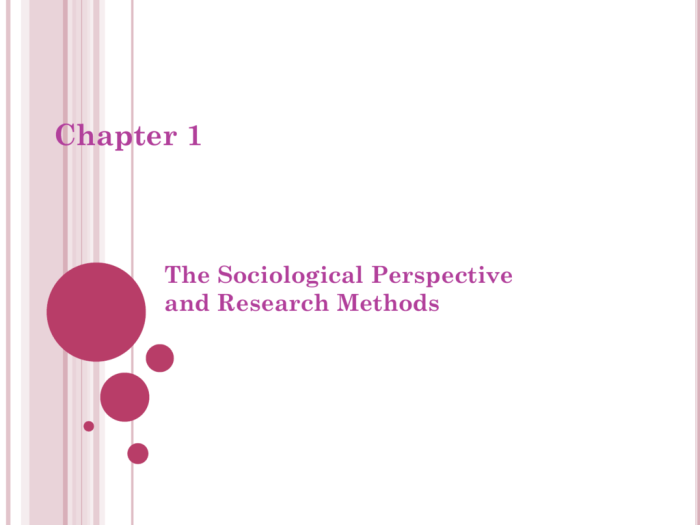Introducing sociology using the stuff of everyday life opens a window to an amazing start and intrigue, inviting readers to embark on a storytelling journey filled with unexpected twists and insights. From the clothes we wear to the food we eat, everyday objects and rituals hold a wealth of sociological significance, revealing the hidden meanings and power dynamics that shape our world.
This exploration delves into the intricate tapestry of everyday life, examining how our experiences contribute to the construction of our social reality and how power and inequality manifest in our daily interactions. By uncovering the sociological implications of technology and speculating on the future of everyday life, we gain valuable insights into the challenges and opportunities that lie ahead.
Defining Everyday Life: Introducing Sociology Using The Stuff Of Everyday Life

Everyday life refers to the routine and habitual practices, interactions, and experiences that constitute our daily existence. It encompasses the mundane and familiar activities that shape our understanding of the world, such as eating, sleeping, working, and socializing.
Everyday life is not merely a backdrop for our lives but an active process that shapes our identities, values, and social relationships. By examining the seemingly ordinary aspects of our daily lives, sociologists gain insights into the underlying social structures and processes that govern our society.
Introducing Sociology through Everyday Objects
Everyday objects, such as clothing, food, or technology, can serve as valuable tools for introducing sociological concepts. These objects reflect the social norms, values, and power dynamics that shape our lives.
For example, the way we dress can reveal our social status, cultural identity, and aspirations. Food choices reflect our dietary habits, cultural preferences, and economic constraints. Technology, in turn, has a profound impact on our communication, work, and leisure activities.
By examining everyday objects, sociologists can uncover the hidden meanings and social significance that underlie our daily lives.
The Hidden Meanings of Everyday Rituals
Everyday rituals, such as eating, sleeping, or commuting, are not merely mundane routines but hold significant sociological importance. These rituals reinforce social structures and shape our identities.
For instance, the way we eat reflects our cultural values, family dynamics, and social status. Sleep patterns can reveal our work-life balance and stress levels. Commuting rituals can provide insights into our social networks and the spatial organization of our cities.
By analyzing everyday rituals, sociologists gain a deeper understanding of the social forces that shape our lives.
The Social Construction of Reality
Our experiences of everyday life contribute to the construction of our social reality. Language, symbols, and interactions shape our perceptions and create a shared understanding of the world.
For example, the way we talk about gender, race, or class can reinforce social stereotypes and shape our expectations of others. Symbols, such as flags or religious icons, can evoke powerful emotions and influence our beliefs.
By examining the social construction of reality, sociologists challenge taken-for-granted assumptions and reveal the underlying power dynamics that shape our perceptions.
The Importance of Social Interaction
Social interaction plays a crucial role in shaping our understanding of everyday life. Through our interactions with others, we learn social norms, values, and expectations.
For example, our interactions with family members teach us about love, respect, and responsibility. Our interactions with friends and colleagues shape our social networks and influence our behavior.
By studying social interaction, sociologists gain insights into the processes that create and maintain social order.
Power and Inequality in Everyday Life
Power and inequality manifest in everyday interactions and situations. Different forms of power, such as economic, political, or cultural power, shape our experiences of everyday life.
For example, the way we are treated in stores, schools, or workplaces can reflect our social status and access to resources. Power imbalances can also affect our ability to participate in decision-making and influence social outcomes.
By examining power and inequality, sociologists expose the hidden dynamics that shape our everyday lives and create social divisions.
The Role of Technology in Everyday Life
Technology has a profound impact on our everyday lives. It has changed the way we communicate, work, and interact with the world.
For example, social media platforms have expanded our social networks and transformed the way we stay connected. Smartphones have made it easier to access information, manage our schedules, and navigate our surroundings.
By examining the role of technology, sociologists explore the social implications of technological advancements and their impact on our everyday lives.
The Future of Everyday Life, Introducing sociology using the stuff of everyday life
The future of everyday life is shaped by emerging technologies and social trends. These changes present both opportunities and challenges for our society.
For example, the rise of artificial intelligence may lead to new forms of work and leisure. Climate change will likely have a significant impact on our daily lives, affecting our food, water, and energy supplies.
By anticipating future changes, sociologists can help us prepare for the challenges and seize the opportunities that lie ahead.
FAQ Resource
What is the significance of everyday life in sociology?
Everyday life is a crucial area of study in sociology as it provides insights into the social norms, values, and power dynamics that shape our world. By examining everyday objects, rituals, and interactions, sociologists uncover the hidden meanings and social significance that often go unnoticed.
How does social interaction contribute to our understanding of everyday life?
Social interaction plays a vital role in shaping our understanding of everyday life. Through our interactions with others, we learn social norms, values, and expectations that influence our behavior and beliefs. These interactions also reinforce social structures and shape our identities.
What is the role of power and inequality in everyday life?
Power and inequality manifest in everyday interactions and situations, shaping our experiences and access to resources and opportunities. Sociologists examine how different forms of power, such as economic, political, and cultural power, can influence our daily lives and perpetuate social stratification.


